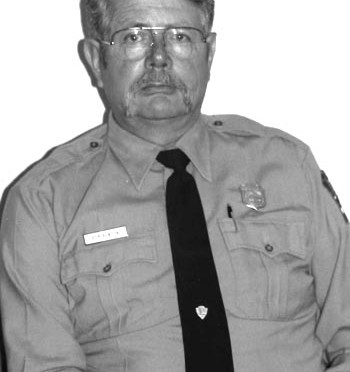As far as the program in Washington goes, was there training in various aspects of resource management?
It depended on where you wanted to be. You could structure the thing about anywhere you wanted to go, within limits. We pushed Herbie Douglas really hard for me to work in the Congressional [Liaison] Office. Hartzog initially said that was fine, that was a great deal. But his political people surrounding George thought it was too dangerous to have a fledgling parkie, one of these young upstarts, farting around in the Congressional Office. So they stomped on that in a big rush and I never got to go over and work with a congressman. Eventually, they reconsidered and a group after mine was able to do that. But I was able to work in the Assistant Secretary’s office and I tended to steer myself into those areas I thought at some point might be of interest to me. I spent some time with Les Glasgow in the Assistant Secretary’s office, who was really interested in resource management. So I steered myself in there. But again, I wanted to avoid the stigma of having only the background of a ranger, ranger, ranger, ranger. . . Other people didn’t feel that way. They steered themselves other places.
Were the CPSUs and the organizational structure in support of science developing in the time that you were in Washington?
Yes. They had a different name. One of them was a collaborator. They had way back in the early ‘sixties. I remember we had a couple of just really nifty science types floating around Everglades when I was down there that were getting deeply involved in some of the science programs. A lot of parks have that type of thing, the coop type science things. Universities have been fooling around in and out of national parks forever, I think.
Did you participate in the negotiation of any concession contracts while you were there?
Concessions was a pretty important thing in the parks. That was a superintendent-type thing. It still is, basically, except for the concession specialist. At Everglades we had large concession when I was sub-district ranger. So we were pretty close to the day-to-day operations.
Concessions contracts, no. That was a highly political thing. It had those long 30-year contracts and a lot of dumb stuff that went on, maybe for a reason. But the work-a-day ranger never got anywhere near that kind of stuff.
We touched a lot on concession things and the need for concession-type development when I was in master planning in the Washington office. I spent little bit of time on a couple of cases with Howard Baker on some cute little concession-type problems. You have to keep in mind that in the early days when I was in the Park Service, we had really up-front leadership that was actually doing some leading. You don’t see near as much of that today as you did then. The director was the director.


